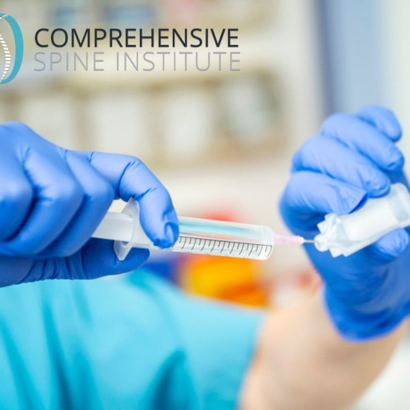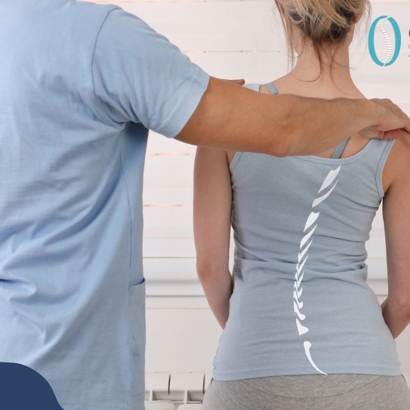
Pinched Nerve Treatment in Tampa
Understanding Pinched Nerves and Spinal Health
A pinched nerve occurs when a single nerve or group of nerves get compressed. This compression is often caused by pressure from bones, ligaments, tendons and even soft tissue that impinge or pinch the nerve. The medical term for a pinched nerve in the spine is Radiculopathy.
Your spinal cord extends from your brain and runs down your spinal canal through the center of your vertebrae. Nerve roots branch off your spinal cord and go between the vertebrae through small openings called foramina. These nerves travel to all ends of the body and transmit signals to the brain.
Our spines endure extreme pressure on a daily basis making them susceptible to injury. Sometimes this pressure or injury cause changes in the foramina resulting in radiculopathy, or a pinched nerve.
Contact the professionals at Comprehensive Spine Institute today and learn more about pinched nerve treatment in Tampa.
Identifying Symptoms of Pinched Nerves
Pain is almost always associated with a pinched nerve. The pain from the compressed nerve correlates with the location of the radiculopathy. For example, a pinched nerve in the cervical spine might cause pain or tingling in the arms, elbows and hands, while a compressed nerve in the lumbar spine could cause radiating pain in the buttocks, legs and feet.
Pinched nerve symptoms include:
- Sharp pain
- Radiating pain
- Aching or burning
- Numbness or tingling
- Decreased sensation in affected area
- Weakness
- Pins and needles sensation
Common Causes of Pinched Nerves
Pinched nerves are associated with, and often result of, many other conditions affecting the spine. Herniated discs are one of the most common causes of radiculopathy. Because of the close proximity of our discs and nerves within the spinal column, the bulging disc matter often pushes up on and compresses the adjacent nerve root.
Common causes of pinched nerves are:
- Bone Spurs or Osteophytes
- Degenerative Disc Disease
- Herniated Disc
- Bulging Disc
- Slipped Disc
- Arthritis
- Poor Posture
- Injury
- Repetitive Motion or Overuse
- Obesity
- Genetics
- Poor Health
Pinched Nerve Locations and Symptoms
Dealing with Cervical Spine Pinched Nerves
A compressed nerve in the cervical spine is often characterized by pain in the upper extremities and neck.
PATIENTS COMPLAIN OF:
- sharp neck pain
- shoulder pain
- arm pain
- numbness in arms or hands
- aching or burning pain
- tingling or pins and needles in arms
- pain when you turn your head
Pinched Nerve in the Lumbar Spine
The lumbar spine is the most common place to suffer from a compressed nerve. This area of the spine is the most flexible and carries the most stress and weight. It is also prone to degenerate more quickly than other areas.
PATIENTS COMPLAIN OF:
- sharp pain in the lower back
- radiating pain that travels down the leg or into foot
- pain the the buttocks
- weakness in the legs
- tingling or pins and needles in the legs
- aching or burning pain
Pinched Nerve in the Thoracic Spine
A pinched nerve in the thoracic spine is more uncommon than in the lumbar and cervical regions and is often be misdiagnosed. It can also be linked to more serious conditions like myelopathy. Often caused by an acute injury or accident, a thoracic compressed nerve causes pain in the upper back, chest and torso.
PATIENTS COMPLAIN OF:
- radiating pain in the chest and back
- weakness and shortness of breath
- aching or burning pain
- tingling or pins and needs
-
Minimal Wait TimeYou shouldn't have to wait a profound amount of time to see a physician we'll get you in, in two weeks or less.
-
Education Is KeyWe believe in educating our patients so they feel empowered when making decisions about their care.
-
4 Convenient LocationsWe are easily accessible with 4 locations that are able to provide the same quality of care.
-
Multi-Specialty PracticeWe pride ourselves on providing our patients with care from physicians who specialize in their needs.
How Is a Pinched Nerve Diagnosed?
Patients who are suffering from symptoms associated with a pinched nerve receive a clinical examination as well as medical history overview. Upon completion, patients may be sent for imaging such as an MRI or CT Scan. Sometimes this involves injecting contrast dye called gadolinium into the bloodstream to give a clearer image of the blood vessels.
A nerve conduction study (NCS) may also be used to diagnose a compressed nerve. Also know as a nerve conduction velocity (NCV) test, this procedure measure how far and how fast electrical impulses move through the nerve by stimulating the nerve with electrodes. If the response is slow or stopped entirely, it may indicate a nerve injury like radiculopathy.
How Is a Pinched Nerve Treated?
Rest is the first treatment recommended for patients suffering from a compressed nerve. Therefore, discontinuing strenuous activities, especially those that cause pain is also suggested. If rest and relaxation do not solve the problem, the next step is conservative care. Conservative care options for radiculopathy are:
- Rest and limiting motion
- Bracing or splinting
- Ice or Heat therapy
- Physical Therapy
- Anti-inflammatory and pain medication
- Steroid Injections
If conservative care does not help relieve the pain associated with a pinched nerve, minimally invasive surgical treatment may be recommended. Decompression procedures such as a laminectomy, laminotomy, or foraminotomy are all designed to relieve pressure by creating space for the nerve roots. These are minimally invasive and often performed in an outpatient facility. Many patients feel immediate relief following surgery.
Frequently Asked Questions
How long does pinched nerve treatment typically take?
The duration of pinched nerve treatment varies depending on the severity of the condition and your response to treatment. In many cases, symptoms improve within a few weeks or months with conservative care. However, more severe cases or those requiring surgery may take longer to heal.
Are there any exercises I can do to help relieve pinched nerve pain?
Physical therapy is often recommended for pinched nerve treatment, and your therapist will develop a personalized exercise program for you. However, some gentle stretches you can try at home, with your doctor's approval.
Contact Us Today
Suffering from a pinched nerve can significantly disrupt your daily life, causing pain, numbness, and tingling. If you're in Tampa and seeking effective relief, Comprehensive Spine Institute offers comprehensive and personalized treatment options. We understand the debilitating nature of pinched nerve pain and are committed to helping you regain your comfort and mobility.
At Comprehensive Spine Institute, our team of experienced spine specialists understands the complexities of pinched nerves. We prioritize a patient-centered approach, focusing on accurate diagnosis and tailored treatment plans to address the root cause of your pain. We utilize a combination of physical examinations, patient history, and advanced imaging techniques to pinpoint the location and severity of the pinched nerve. Our goal is to provide lasting relief and restore your functionality.
If you're experiencing symptoms of a pinched nerve in Tampa, don't hesitate to contact Comprehensive Spine Institute. We are dedicated to providing you with the highest quality care and helping you find lasting relief.
If you believe you may have a pinched nerve, schedule an appointment with our experienced team to help find the best treatment option for you.
The Latest In Orthopedics
-
 The Case for Epidural Steroid Injections
The Case for Epidural Steroid InjectionsDiscover Relief with Epidural Steroid Injections Living with chronic spinal pain can be exhausting, impacting every ...
Read More -
 Innovative Treatments for Back Pain: Exploring the Latest Advances in Spine Care
Innovative Treatments for Back Pain: Exploring the Latest Advances in Spine CareInnovations in Back Pain Treatment for a Healthier Future Dealing with back pain can take a toll on every aspect of your ...
Read More -
 What Is Spinal Cord Stimulation?
What Is Spinal Cord Stimulation?Spinal cord stimulation (SCS) is a cutting-edge technique that leverages electrical impulses to mitigate chronic pain. ...
Read More -
Understanding Workers' Compensation for Spine Injuries: A Guide for Employees
If you've suffered a spine injury on the job, workers' compensation could be a vital lifeline. This government-mandated ...
Read More


.2408222022228.png)